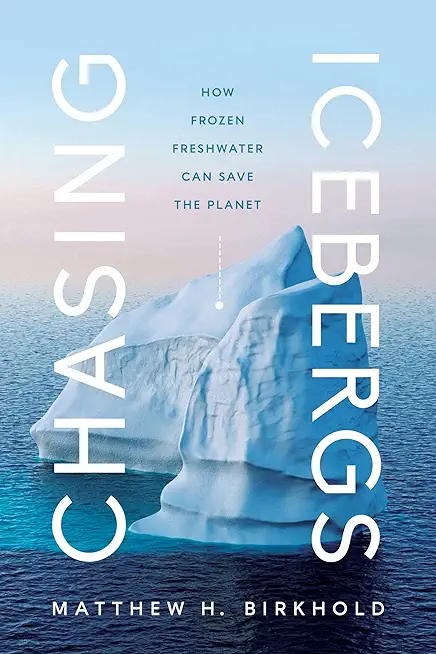
Birkhold, Matthew H.
product information
description
3A deeply intelligent and engrossing narrative that will transform our relationship with water and how we view climate change. The global water crisis is upon us. 1 in 3 people do not have access to safe drinking water; nearly 1 million people die each year as a result. Even in places with adequate freshwater, pollution and poor infrastructure have left residents without basic water security. Luckily, there is a solution to this crisis where we least expect it. Icebergs--frozen mountains of freshwater--are more than a symbol of climate change. In his spellbinding Chasing Icebergs, Matthew Birkhold argues the glistening leviathans of the ocean may very well hold the key to saving the planet. Harvesting icebergs for drinking water is not a new idea. But for the first time in human history, doing so on a massive global scale is both increasingly feasible and necessary for our survival. Chasing Icebergs delivers a kaleidoscopic history of humans' relationship with icebergs, and offers an urgent assessment of the technological, cultural, and legal obstacles we must overcome to harness this freshwater resource. Birkhold takes readers around the globe, introducing them to a colorful cast of characters with wildly different ideas about how (and if) humans should use icebergs. Sturdy bureaucrats committed to avoiding another Titanic square off against "iceberg cowboys" who wrangle the frozen beasts for profit. Entrepreneurs selling luxury iceberg water for an eye-popping price clash with fearless humanitarians trying to tow icebergs across the globe to eradicate water shortages. Along the way, we meet some of the world's most renowned scientists to determine how industrial-scale iceberg harvesting could affect the oceans and the poles. And we see firsthand the looming conflict between Indigenous peoples like the Greenlandic Inuit with claims to icebergs and the private corporations that stand to reap massive profits. As Birkhold shepherds readers from Connecticut to South Africa, from Newfoundland to Norway, to Greenland and beyond, he unfurls a visionary argument for cooperation over conflict. It's not too late for icebergs to save humanity. But we must act fast to form a coalition of scientists, visionaries, engineers, lawyers and diplomats to ensure that the "Cold Rush" doesn't become a free-for-all.
member goods
No member items were found under this heading.
listens & views

HOT HARMONY GROUPS 1932-1951 2 ...
by HOT HARMONY GROUPS 1932-1951 2 / VARIOUS
COMPACT DISCout of stock
$10.49

SYMPHONY OF SEASONS / LAIRS ...
by LOCKLAIR / HOUSTON / BARTLETT / SLOVAK RSO / TREVO
COMPACT DISC$18.49
Return Policy
All sales are final
Shipping
No special shipping considerations available.
Shipping fees determined at checkout.





